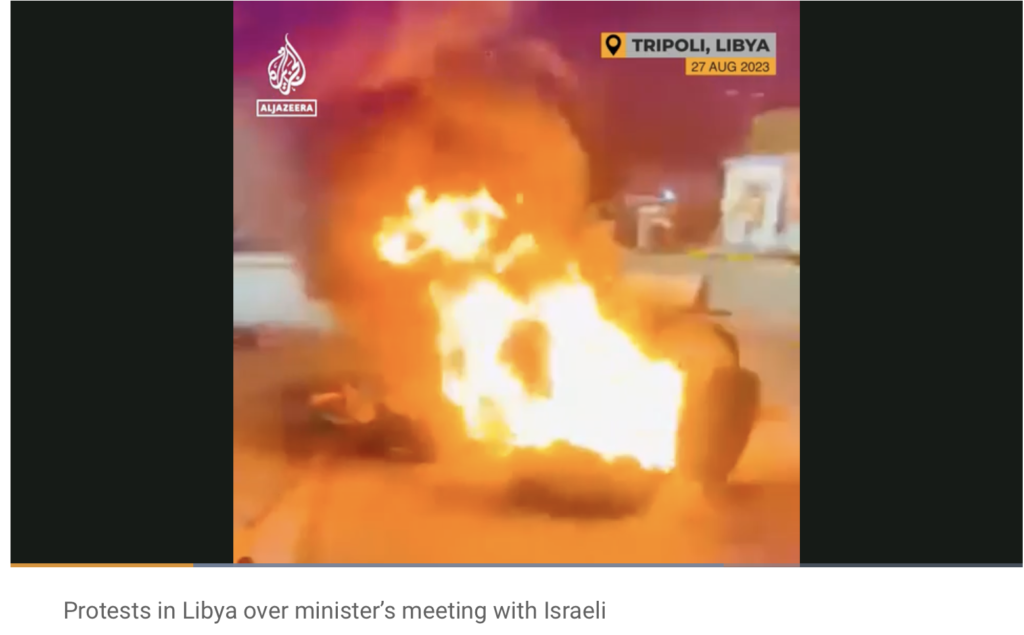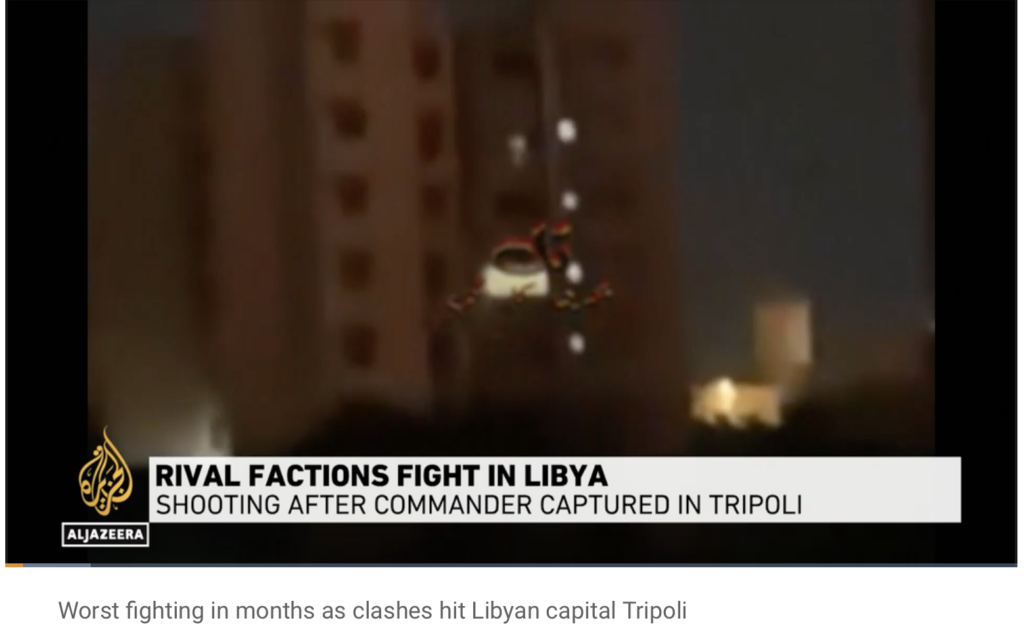Last month’s meeting between the Libyan and Israeli foreign ministers may eventually achieve little but give public defense for renewed fighting between Tripoli’s fortified groups and the decaying, maybe critically, of Libya’s interim high minister, Abdul Hamid Dbeibah, judges have said.
Since arising from the ashes of the country’s 2011 revolution, Libya’s numerous regulars have maintained a series of uneasy alliances with the country’s stirring leadership, who calculate upon the fortified groups to project power across the1.8 million square kilometres( nearly 700,000 square long hauls) of oil painting-rich home.
While the eastern resemblant government in Benghazi has endured some success in corralling its fortified groups into the pack of the Libyan National Army host, its western rivals in Tripoli – who are recognised by the United Nations – have enjoyed significantly lower success. Pressures, frequently deadly, between regulars are commonplace for those living within Tripoli, with the fault lines between rival groups uncertain.
Overseeing it all, at least on paper, is Dbeibah’s government, in power in Tripoli since the failed choices of December 2021 and one whose every policy must weigh the tone- interests of the regulars responsible for carrying them out. Conflict broke out as lately as August, with numerous of the same fortified groups now seizing upon the Israeli meeting to push dockets only parenthetically related to the meetingitself.Tensions with Zawiya Maintaining the precarious balance of power with the regulars, while negotiating with the rival government in Benghazi, dominated by General Khalifa Haftar, was always going to be a tricky proposition for Dbeibah, an interim high minister under transnational pressure to help bring around some kind of popular resolution to Libya.
For Dbeibah, facing pressure from abettors in the United States and Italy and keen to normalise a particular accreditation now long beyond its sell- by date, authorising the Israeli meeting, as he’s suspected of having done, may have sounded an egregious political choice. still, by oohing news of the meeting, Israel basically threw petrol onto a long- stewing fire. As demurrers broke out – for the utmost part, a genuine expression of sincere sympathies for the Palestinian cause – Libya’s regulars are allowed to have descried occasion amidst the confusion, with groups from the western megacity of Zawiya being the first to add their figures to the mass in the capital.
A lot of people were streaming down from Zawiya after news of the meeting broke, ” Tarek Megerisi, an elderly policy fellow at the European Council on Foreign Relations, said. In May, Dbeibah had ordered drone strikes on fortified groups in Zawiya following weeks of raising pressure. The strikes were justified by the government as targeting people bootleggers and merchandisers. But they inversely served as both a memorial of Tripoli’s military prowess, as well as a warning of Dbeibah’s reach to the Abu Zariba sisters, Ali, an MP combined with the Tripoli government, and Hassan, the original Zawiya leader of another host, the Stability Support Apparatus( SSA).
Shifting scales Since the destruction of Tripoli International Airport in 2014, access to the capital has only been possible via the military base at Mitiga, which had been espoused as the base for the Special Deterrence Forces( SDF) the former time, giving the strict host control over all access into the country’s capital and largest megacity. With the opening of a new transnational field slated for 2024, the SDF’s pre-eminent part in the megacity’s host scale stands to be unnaturally undermined. Other fortified groups look ready to capitalise, not least the well- chastened and heavily fortified 444 squad.

Tensions with Zawiya
During a little over 24 hours of fighting, 55 civilians were reportedlykilled.Ironically, among those who brokered a armistice between the two groups was al- Kikli’sSSA.However, the mortal tragedy and structure destruction could be immense, ” Harchaoui said, “ If there’s a prolonged war between these groups within the megacity.
formerly, Harchaoui said, the capital’s colorful regulars, some religiously inspired, others with factors dating back to former leader Muammar Gaddafi’s intelligence services, are clubbing with their preferred seeker, generally grounded upon pessimistic computations over how they see the conflict unfolding, or how it might impact their prestige or structural influence.
Normalisation insincerity Given the circumstances, sweats to establish Dbeibah as an transnational statesman by encouraging normalisation with Israel may have been ill- advised. nonetheless, the August meeting isn’t the first time a Libyan politician has met an Israeli functionary to bandy normalisation.

Libyans are n’t thick
A many times ago we flash back him encouraging his foreign minister – when he’d a foreign minister – to seek normalisation with Israel. ” Two times before that, Saddam Haftar, Khalifa’s son, was reportedly in Tel Aviv to bandy normalising politic relations in return for Israeli military technology.
There’s little mistrustfulness that the present rampage has unnaturally undermined Dbeibah, potentially indeed permanently. still, Megerisi advised, it’s important to set the current extremity against the background of recent uneasiness, ranging from drone strikes, internecine fighting, hijackings and the arbitrary apprehensions of prominent individualities. “ These are n’t insulated incidents.
They ’re further about the cabal- style accommodations between the two men( ahead of a unborn government), with Dbeibah signalling to Haftar that he ca n’t strongarm him in the way he did with his precursor, Fayez al- Sarraj, ” Megresi concluded. Knowing the insecurity on the ground, the involvement of both Italy and the United States in Libya’s external affairs was “ the worst politic failure in times, ” said German intelligencer Mirco Keilberth, who has lived and reported from Libya since the 2011 revolution.
